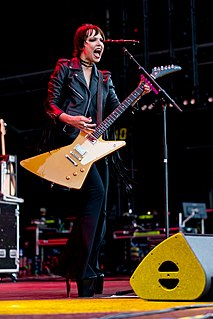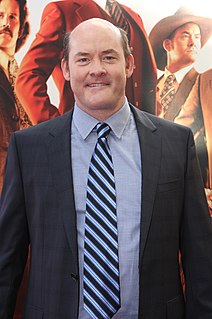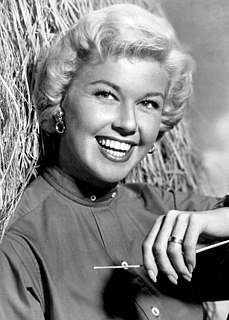A Quote by Tig Notaro
When I've had to edit my albums, I'll listen to it one time through, and I'll make edits. I want to remember to set up a camera to record myself listening to my set, because I don't even slightly crack a smile, I am just listening for technical details, and I look like somebody that has absolutely no sense of humor. I look insane.
Related Quotes
If you feel like you're doing terrible in a scene, that usually means that you're not listening because you're too preoccupied with yourself... you're not listening to your scene partner. If you listen, you're naturally going to get that response that the camera's going to pick up because you just react.
I notice how it takes a lazy man, a man that hates moving, to get set on moving once he does get started off, the same as when he was set on staying still, like it aint the moving he hates so much as the starting and the stopping. And like he would be kind of proud of whatever come up to make the moving or the setting still look hard. He set there on the wagon hunched up, blinking, listening to us tell about how quick the bridge went and how high the water was, and I be durn if he didn't act like he was proud of it, like he had made the river rise himself.
I think that even in a drama, we all want to smile, and laugh because what a horrible life if we're just like "I'm in a drama." And so I think in everything you're trying to look for the humor, even if it's a dark scene, because most people want to have fun in life, as opposed to have a boring time, a terrible time.
As I write, Johnny Rotten's first moments in "Anarchy in the U.K." - a rolling earthquake of a laugh, a buried shout, then hoary words somehow stripped of all claptrap and set down in the city streets - I AM AN ANTICHRIST - Remain as powerful as anything I know. Listening to the record today - listening to the way Johnny Rotten tears at his lines, and then hurls the pieces at the world; recalling the all-consuming smile he produced as he sang - my back stiffens; I pull away even as my scalp begins to sweat.
Deep listening is the kind of listening that can help relieve the suffering of another person. You can call it compassionate listening. You listen with only one purpose: to help him or her to empty his heart. Even if he says things that are full of wrong perceptions, full of bitterness, you are still capable of continuing to listen with compassion. Because you know that listening like that, you give that person a chance to suffer less.
Look at Nelson Mandela. Why did people want to follow him? He's a lousy speaker. If he hadn't got all the other things, you wouldn't spend time listening to him. But people actually don't listen to what he's saying, in a way. They are listening to him because he has communicated that he is ready to put his life on the line.
Not only do I look at the playback with the actors, but I look at the on-set assembly footage with the sequences with my actors as well. These are the reasons why I take twice as much time to shoot a film in Korea. Thinking back, I remember on my first ever Korean film, I never used any playback or on-set assembly, so all I had to do was to tell myself it's just like making my first ever Korean-language film. After that, I felt right at home.
I love jazz. So to me, there are two main types of jazz. There's dancing jazz, and then there's listening jazz. Listening jazz is like Thelonius Monk or John Coltrane, where it's a listening experience. So that's what I like; I like to make stuff that you listen to. It's not really meant to get you up; it's meant to get your mind focused. That's why you sit and listen to jazz. You dance to big band or whatever, but for the most part, you sit and listen to jazz. I think it comes from that aesthetic, trying to take that jazz listening experience and put it on hip-hop.
I grew up, like - since I had a lot of brothers, I grew up listening to Hot Boys, Goodie Mob, OutKast, basically all the southern albums, like Silkk the Shocker, Master P, Soulja Slim, and then it just elevated on when I started getting into music and I started listening to Nas and Jay Z and stuff like that and Lupe Fiasco and whatnot.

































